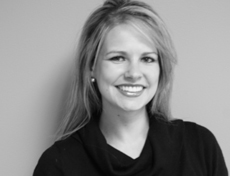Facebook’s mission is to make the world more open and connected. Since launching in 2004, Facebook has changed what it means to connect online and has empowered billions to share. But nearly a decade in, there is uncertainty about Facebook maintaining its top flight position due to changing demographics, competitors, copied innovation and a backlash to paid content strategy. The assumption has been Facebook is easy, the de facto, must-use social platform. A client says “we need social” – marketers would say “Facebook.” As strategists we can’t just assume Facebook is a go to solution moving forward.
Vocus recently brought together five industry experts during its Demand Success 2013 conference at the National Gaylord Hotel for a panel titled “Facebook Futures.” The closing panel was designed to discuss what the future looked like for a platform that has recently seen decreased results on fan pages, higher charges for promoted posts, and increased competition in the news feed.
The panelists include Geoff Livingston, author and marketing strategist; Katya Andresen, non-profit marketing expert and incoming CEO of ePals; Shashi Bellamkonda, VP Digital Marketing for The Buzzuto Group; Rebecca Davis, EVP of Digital at Ogilvy; and Angela Hausman, social media professor at Howard University.
Livingston sees a tough road ahead for Facebook. Watch the video here.
Before tackling the future of the platform, the experts discussed the changing demographics for Facebook and what it means for marketers. The fastest growing user base is baby boomers, which has pushed away many millennials from Facebook, changing what brands should utilize the platform as a central hub. Even with a shift in the age of users Bellamkonda points out that since there “are 1.1 billion users on Facebook your audience is likely there, but the big question is do they want to hear from you?”
Not all panelists agreed that Facebook is the place to be heard – Davis went as far as to say that if your brand “is not on Facebook already then ask if you would even break through” the clutter before joining. Andresen hedged bets by suggesting a “review of your audience and if Facebook is relevant to them” before implementing the channel into your outreach strategy.
The user demographics aren’t the only change at Facebook recently; the platform itself has undergone changes to improve the user interface which had panelist split as to if those changes were innovations or just copycat moves, and if they added to the experience.
“There is a tension in Facebook currently,” comments Andresen. “We go to see friends, escape ads, but ads are part of the business model for Facebook” and there is a large demand from marketers to become something people want to connect with. Facebook is steadily working to ensure ads and connections coexist on the platform as well as offering a unique text and visual user experience. Facebook “watches competitors and it grows, sometimes they even innovate like with News Feed but that is in crisis now” comments Davis.
Facebook’s future is more in doubt than it was three years ago, so keep a close eye on the trends. In the meantime, there’s value if you use Facebook, specifically capitalizing on its new feature of hashtags in a smart, clear way focused on the target audience.
A shining light for the future of Facebook appears to be the use of hashtags. The panelists painted a picture of a “dynamic community created by hashtags,” bringing people together for one moment in time making real time connections possible and giving users the tool to execute relevant searches in an easier way.
Even more changes might be on the way for Facebook too – a VP at the social network hinted that auto-play video ads could be the next piece of paid content rolled out in news feed according to TechCrunch.
So yes, Facebook has challenges ahead to remain the de facto social platform, but the platform does boast billions of users and continues to create tools to connect users to brands, organizations and causes. Savvy marketers and agencies will want to watch closely as the demographics of Facebook users continue to shift and the platform’s capabilities evolve. In the meantime, there is still opportunity to utilize Facebook to connect the right client message with the right audience.
“As the social media heavyweight, it’s natural to debate the longevity of Facebook. But the fact is Facebook brings the largest user base to the table, making it a logical choice for marketers,” adds Porter Novelli’s Vice President of Digital Strategy, Valerie Elston. “The key is to understand your audience and what will motivate them to engage with you. Facebook requires brands to act as publishers and have clear content strategies to produce desired results. Before abandoning Facebook I would first consider if your approach to Facebook is right for your audience.”
Check out a Storify recap of the panel.
Tina McCormack Beaty’s passion is food, local retail, and small businesses. Professionally focusing on strategic communications, branding, and entrepreneurial marketing using integrated tools of social media and PR. Currently, Tina is president of Washington Women in Public Relations and is an accounts lead on Porter Novelli’s foodie team. She also serves on Miami University’s (OH) Alumni Board. You can reach Tina at @TMStrategy.
